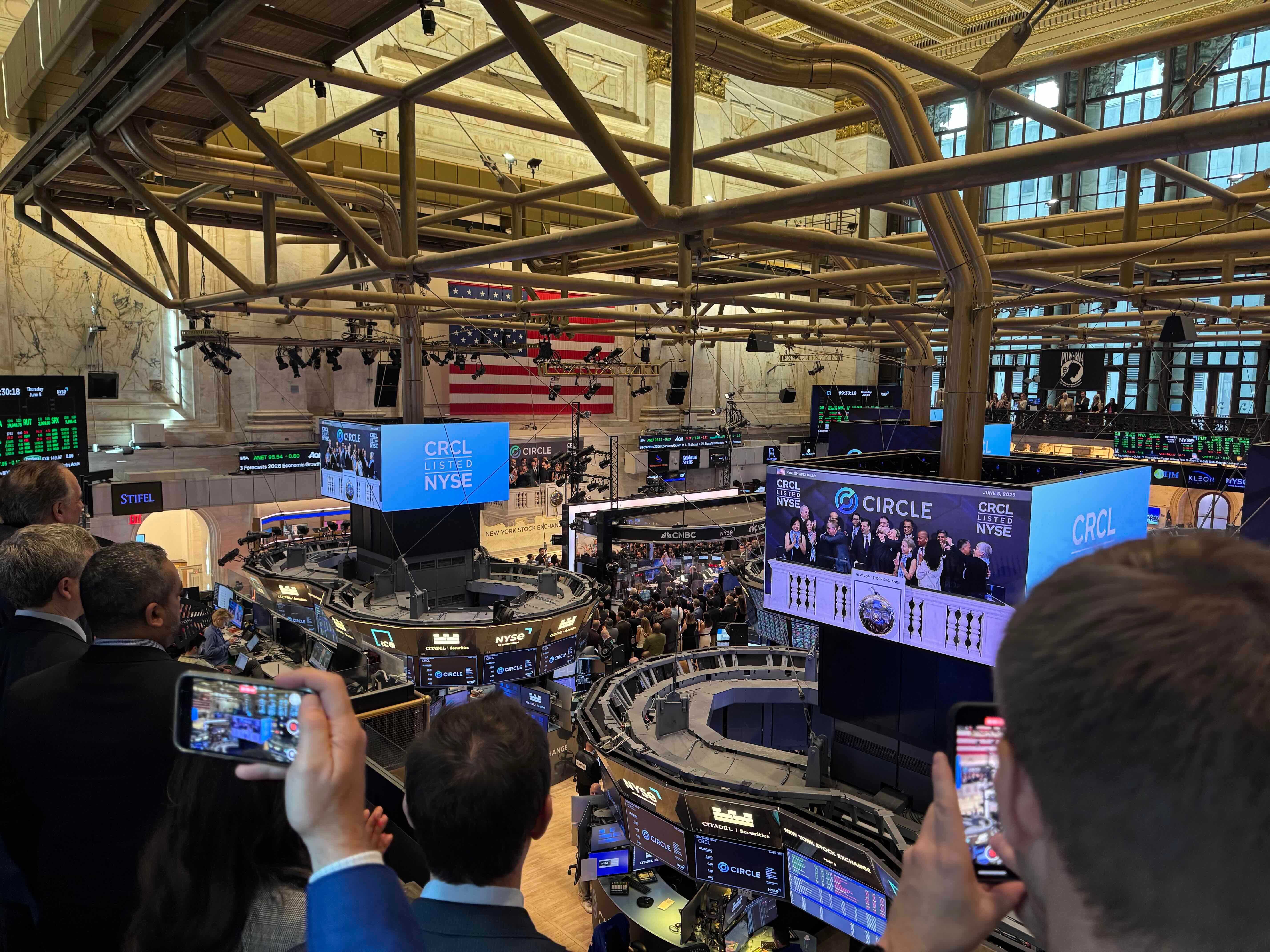
Last Thursday, I was fortunate to participate in a media segment at NYSE TV as Circle debuted on the exchange under the ticker CRCL. My first experience at the NYSE was with my father when I was young, and I remember thinking of IBM as an emblem of future advancements.
Circle’s delegation this time was notably larger than customary, filling not just the trading floor but also both adjacent galleries. When the applause erupted at precisely 9:29:30, the usual calm of the trading session vanished. NYSE President Lynn Martin and Circle CEO Jeremy Allaire shared the spotlight, educators and brokers interrupted their routines to join in the celebration, fuelling an extraordinary atmosphere.
I cheekily inquired which trading booth would manage CRCL, only to find that no one was prepared for my question. This led to a spontaneous shift in our live segment focus from bitcoin to stablecoins—an ample topic indeed.
The energy on the trading floor, just inches from Allaire, felt electric, akin to the satisfaction of completing a marathon. It marked a significant achievement influenced by a more accommodating SEC and recent blockchain legislation, resonating with a mature financial setting rather than exuberant speculative actions.
A Long-Awaited Moment
Introduced in September 2018, USDC coincided with a high point in U.S. interest rates, making it an opportune launch. The onset of COVID in 2020, however, ushered in a Zero-Interest-Rate-Policy that endangered the business model, albeit fueling more crypto engagement.
As rates soared in 2022 in reaction to pandemic stimulus, stablecoins found themselves amidst both encouraging and daunting circumstances: increasing revenues alongside traumatized markets. Circle’s previous SPAC attempt fizzled during this shift, announced in July 2021 when yields were a mere 0.05%, and later revoked in December 2022 when rates peaked at 4.42%.
Now, with interest rates settled between 4-5%, the business framework has proven to be effective. USDC holders are offered comparable rewards to secure yields. Legislation like the GENIUS Act on stablecoins is shaping up favorably, unlocking broader market involvement and adoption.
The U.S. government now stands as a potential client for U.S. treasuries, enhancing demand for American debt, pivotal in global trade. Circle and similar firms are capitalizing on a beneficial yield scenario, yet remain vigilant of interest rate risks which now come under the scrutiny of CRCL investors and analysts.



